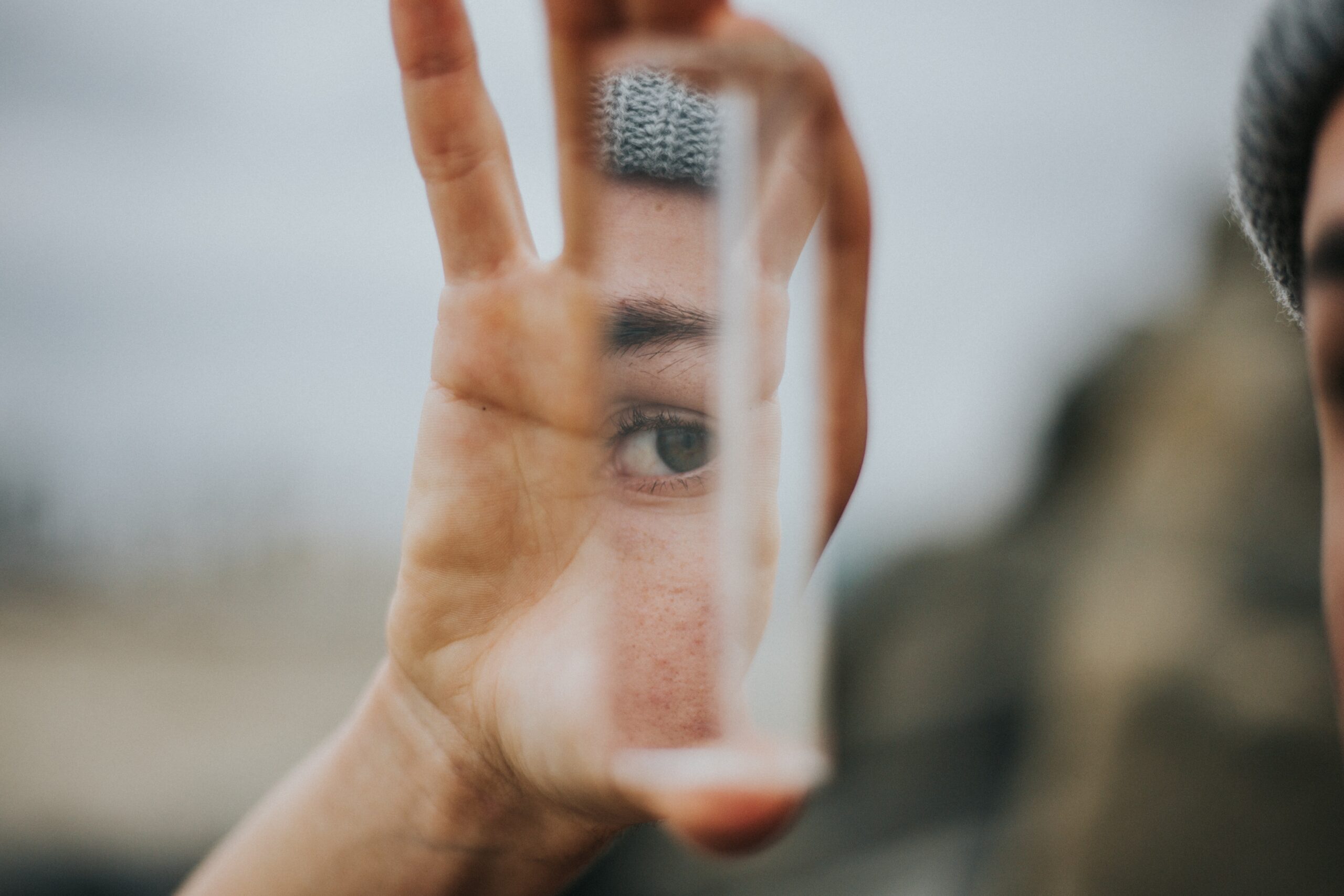Last Updated on October 20, 2023
Self-reflection is an art, a journey into the depths of our own minds and hearts, a profound exploration of the way we think, feel, and behave. It is a powerful tool for personal development, allowing us to gain a deeper understanding of ourselves and our interactions with the world.
In this article, we will explore the importance of self-reflection, uncovering the reasons why we think the way we do, feel the way we do, and how these insights can be harnessed to think and solve problems effectively.
The Art of Self-Reflection
Self-reflection is the conscious act of examining one’s thoughts, emotions, and actions. It serves as a mirror that reveals the intricacies of our inner world, helping us make sense of the complex web of human experience. But why do we think the way we do, and why do you think the way you do? The answers lie in the interplay of cognitive biases, personal experiences, and cultural influences that shape our mental landscapes.
Why Do We Think the Way We Think: What Influences Our Decisions?
Cognitive biases are the invisible lenses through which we view the world. They influence our judgments and decisions, often leading us to suboptimal outcomes. Understanding these biases through self-reflection is the first step in mitigating their impact. Self-reflection allows us to recognize when biases such as confirmation bias or availability heuristic cloud our thinking, giving us the opportunity to challenge and reframe our perspectives.
Personal experiences, too, play a significant role in shaping our thought processes. These experiences are the building blocks of our mental framework, and through self-reflection, we can uncover the sources of our beliefs, values, and attitudes. By examining these experiences, we can gain insight into why we think the way we do and, if necessary, initiate a process of growth and change.
Cultural influences, whether societal norms, familial values, or the media, also contribute to the formation of our thoughts. Self-reflection helps us disentangle our individual beliefs from the collective narratives that often dictate our thinking. This separation allows for greater autonomy and a more authentic sense of self.
Why Do You Think the Way You Do: How Can Self-reflection Help?
Self-reflection encourages us to explore the depths of our thought processes. It helps us uncover the roots of our beliefs and values, revealing the sources of our thinking patterns.
Why Do You Think You Feel That Way
Emotions are the bridge between thought and action, making it imperative to understand why you think you feel the way you do. The mind-emotion connection is intricate and multi-faceted, involving various mechanisms that influence our emotional responses.
The role of past experiences is profound. Through self-reflection, we can trace the origins of our emotional responses to specific events or patterns in our history. Understanding these roots enables us to process and manage our emotions more effectively.
Coping mechanisms and defense mechanisms are strategies our minds employ to protect us from emotional distress. Self-reflection allows us to recognize when these mechanisms are at play and to evaluate their effectiveness. This insight empowers us to choose healthier coping strategies and deal with our feelings in a more constructive manner.
Understanding Behavior: Why Do Humans Behave the Way They Do
While self-reflection is a deeply personal endeavor, it is also instrumental in deciphering the broader question: why do humans behave the way they do? Our behaviors are influenced by a complex interplay of factors, encompassing nature vs. nurture, social and environmental influences, and biological and psychological determinants.
Nature vs. nurture explores the genetic and environmental influences on human behavior. Self-reflection can help us recognize which aspects of our behavior are inherited and which are learned. This awareness can be the key to breaking undesirable patterns and fostering personal growth.
Social and environmental factors, such as upbringing, peer groups, and societal norms, significantly mold our behaviors. Self-reflection can reveal how external influences have impacted our actions, enabling us to choose behaviors that align with our authentic selves.
Biological and psychological influences, from brain chemistry to personality traits, play a substantial role in human behavior. Self-reflection allows us to identify the innate characteristics that guide our actions and adapt our choices accordingly.

Self-Reflection Techniques
Self-reflection is not a passive exercise but an active practice that can be cultivated. To help you think and solve problems more effectively, here are some practical techniques:
- Journaling: Keeping a journal allows you to record your thoughts and emotions, providing a concrete record of your inner world. Regularly reviewing your journal can help identify patterns and areas for improvement.
- Mindfulness Meditation: Mindfulness practice encourages non-judgmental awareness of your thoughts and emotions. This helps you gain insight into the workings of your mind and enhances your ability to think critically.
- Seeking Feedback from Others: Constructive feedback from friends, family, or mentors can offer valuable perspectives on your behavior and thought patterns. Engaging in open conversations and being receptive to feedback is an essential aspect of self-reflection.
Think and Solve Problems: Enhancing Cognitive Abilities
Self-reflection and problem-solving are intertwined. When you understand why you think the way you do and why you feel the way you do, you can think more critically and solve problems effectively.
Critical thinking skills, honed through self-reflection, enable you to approach problems with a discerning eye. By recognizing your biases and thought patterns, you can make more rational and well-informed decisions.
Decision-making processes benefit from self-reflection as well. Understanding the emotional underpinnings of your choices allows you to make decisions that align with your values and long-term goals.
Learning from mistakes is a natural outcome of self-reflection. Rather than dwelling on failure, you can examine the circumstances that led to it, learn from your missteps, and apply this knowledge to future problem-solving.
The Benefits of Self-Reflection
The benefits of mastering self-reflection are manifold. It not only enhances your ability to think and solve problems but also offers numerous other advantages:
- Improved Self-Awareness: Self-reflection allows you to gain deeper insights into your own thoughts, emotions, and behaviors, leading to enhanced self-awareness.
- Better Decision-Making: By understanding the intricacies of your thought and emotion processes, you can make decisions that are more aligned with your authentic self and long-term goals.
- Aid Personal Growth and Resilience: Self-reflection is a key driver of personal growth. It helps you evolve, adapt, and build resilience in the face of life’s challenges.
Overcoming Challenges in Self-Reflection
Self-reflection is not without its challenges. Avoiding self-judgment, confronting uncomfortable truths, and maintaining consistency can be difficult. However, with practice, these obstacles can be overcome.
Avoiding self-judgment is essential in self-reflection. Remember that it’s not about berating yourself for past actions but about gaining insight and growing. Treat yourself with the same kindness and compassion you would offer to a friend.
Dealing with uncomfortable truths can be emotionally challenging. Yet, recognizing and addressing your shortcomings is a crucial step in personal growth. Embrace discomfort as an opportunity for positive change.
Staying consistent in your self-reflection practice can be tough in our busy lives. Set aside dedicated time for self-reflection and create a supportive environment that encourages this introspective process.
Implementing Self-Reflection in Daily Life
To make self-reflection a part of your daily routine, follow these tips:
- Set Aside Dedicated Time: Allocate a specific time each day or week for self-reflection. Consistency is key to reaping the benefits.
- Create a Supportive Environment: Find a quiet, comfortable space where you can reflect without distractions. Consider using journaling or mindfulness aids to facilitate the process.
Conclusion: Gaining Insight into Our Thoughts & Emotions
Self-reflection is a powerful tool for personal growth and understanding. By asking why you think the way you do and why you feel the way you do, you embark on a journey of self-discovery and transformation. It enhances your ability to think and solve problems effectively and fosters personal growth, resilience, and better decision-making. So, take the time to look within, understand yourself, and use self-reflection as a compass to navigate the complex terrain of human existence.








